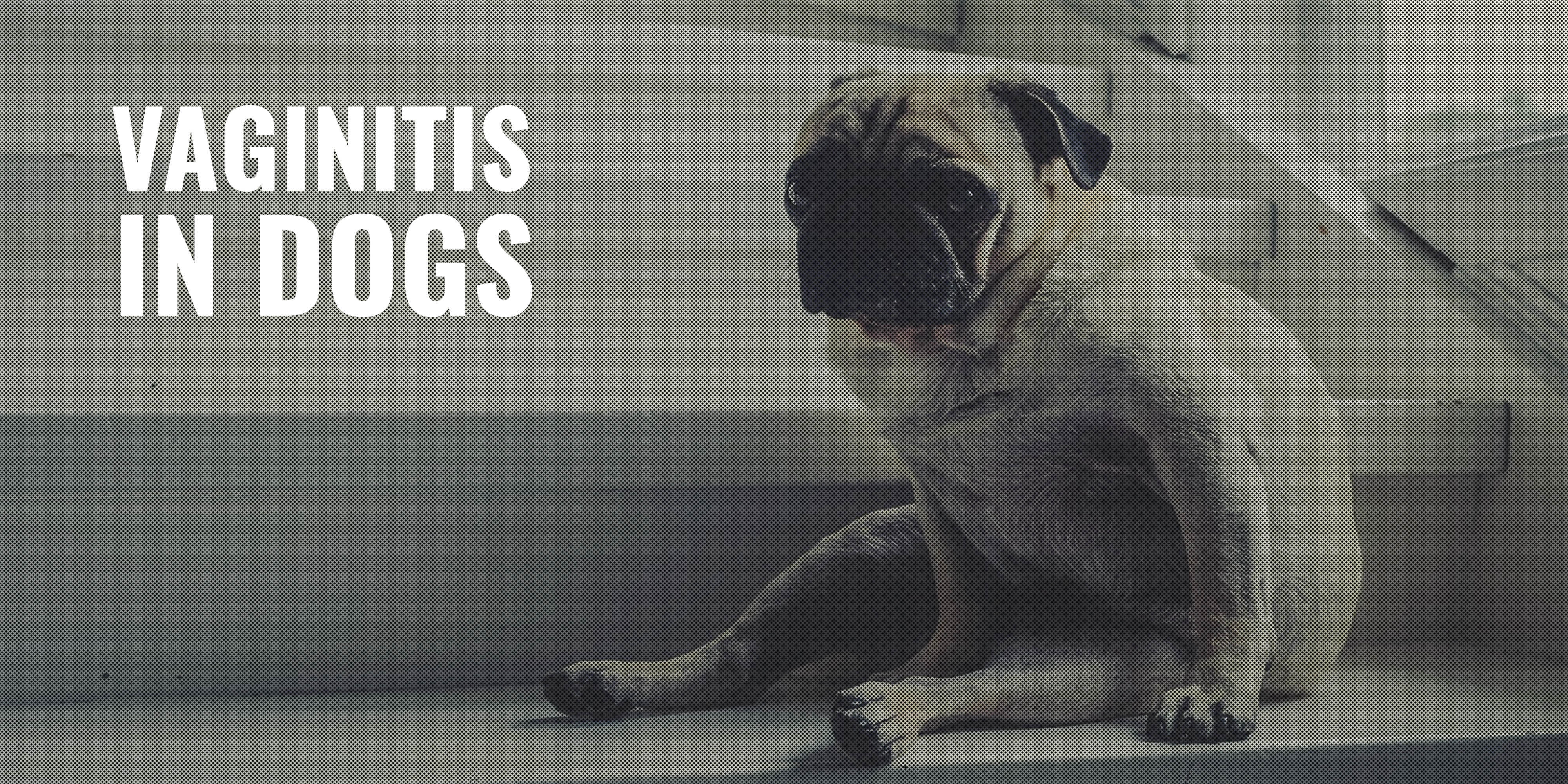Since antibiotics may actually worsen vaginitis by increasing levels of bad bacteria pet owners are discovering that probiotics for canines with vaginitis works safely and effectively to eliminate bad bacteria responsible for the infection while promoting growth of good bacteria. Some Of The Best Antibiotics for Dogs Amoxicillin.

Most cases of vaginitis respond well to conservative treatment.
Antibiotic for dog with vaginitis. Treatment is based on the specific cause of your pets condition. Many pets receive antibiotics based on sensitivity testing or source location of the problem and twice daily vaginal douches 005 chlorhexidine or 05 povidone-iodine solutions. Often this will lead to recurring vaginitis and gulp another round of antibiotics.
Probiotics are often recommended to help balance your dogs gut bacteria and keep PH levels healthy if vaginitis is persistent. If your dog has a sensitivity to dairy there is a broad spectrum of non-dairy probiotics for dogs. Veterinarians not often prescribe antibiotics for juvenile vaginitis because the situation usually resolves itself as soon as the canine reaches adolescence.
Grownup-Onset Vaginitis in Feminine Dogs. Grownup-onset vaginitis is extra generally seen in spayed canines than unspayed canines and might have an effect on grownup canines of any age. Many pets receive antibiotics based on sensitivity testing or source location of the problem and twice daily vaginal douches 005 chlorhexidine or 05 povidone-iodine solutions.
Your veterinarian will develop a precise treatment plan for your pets individual needs. Trauma - If a dogs vaginal area is injured this area can become inflamed and develop vaginitis. Foreign bodies - Occasionally small items like grass seeds foxtails or other plant pieces can lodge themselves into the vaginal opening.
This may result in vaginitis due to the irritation these items cause. Every case is different but in general a culture will be obtained to determine whether the vaginitis is fungal or bacterial so antifungals andor antibiotics can be administered. Your dog might need to have her anal glands expressed as.
Juvenile vaginitis typically requires no treatment. Treatment of adult-onset vaginitis depends on the cause. In all dogs with vaginitis a broad-spectrum non-diary probiotic can help keep opportunistic bacteria levels in check.
Using unscented baby wipes to clean your dogs vagina may improve the condition as will using talc-free cornstarch to powder the area after wiping. Additionally adding a broad spectrum non-dairy probiotic for dogs to your dogs meals. Bacterial infection may respond to local treatment ie vaginal douches.
Systemic broad-spectrum bactericidal antibiotics may be needed for persistent infections. Prepubertal animals often do not require treatment because the vaginitis nearly always resolves with the first estrus. Antibiotics for vaginitis.
If you have bacterial vaginosis your doctor may prescribe a topical or oral antibiotic such as. If you think you have a form of vaginigtis contact a PlushCare doctor right away. Since antibiotics may actually worsen vaginitis by increasing levels of bad bacteria pet owners are discovering that probiotics for canines with vaginitis works safely and effectively to eliminate bad bacteria responsible for the infection while promoting growth of good bacteria.
The treatment of vaginitis will be made up of 2 main components. Oral medication which typically includes antibiotics to eliminate the viruses or bacteria. Antifungal medication can also be prescribed if the dog has a fungal infection.
Topical creams which will reduce the swelling and will make the dog more comfortable. In all cases of vaginitis I recommend a broad-spectrum non-diary probiotic be administered to help keep opportunistic bacteria levels in check. If a case of puppy vaginitis turns into a chronic case of adult vaginitis immunoglobulin testing should be performed to check the dogs innate immune function.
If your dog has a diagnosis of vaginitis she may be prescribed with a broad-spectrum antibiotic. A broad-spectrum antibiotic is an antibiotic that acts on both of the two major bacterial groups gram-positive and gram-negative. Your dog also may go home with an antibiotic to prevent infection of the incision.
Vaginitis inflammation of the vagina may be concerning when observed but has a good prognosis especially if the underlying cause is identified and treated early. The most common clinical signs of vaginitis include increased frequency of. Urinary tract infections cause the majority of cases of vaginitis.
Since the female urethra and vagina are close together infected urine easily contaminates the latter organ. If caused by infection your vet will prescribe antibiotics and. Probiotics have been shown to dramatically help women with vaginitis and this is true of female canines as well.
All too often however probiotics do not have very many active organisms. Be sure to choose a probiotic that is fresh and has a large number of active organisms. One of my favourite products is Culturelle.
Primary vaginitis in the absence of structural or hormonal abnormalities is uncommon in dogs. Systemic antibiotic therapy with or without local flushing of the vagina and vulva is usually unsuccessful in providing long-term control of vaginitis. What is the prognosis for a dog diagnosed with vaginitis.
Most cases of vaginitis respond well to conservative treatment. Many patients return to normal within two to three weeks of initiating treatment. Most cases of prepubertal vaginitis resolve after the first heat cycle and further treatment such as antibiotics are not needed.
Some Of The Best Antibiotics for Dogs Amoxicillin. Amoxicillin is a penicillin antibiotic that treats infections related to ear urinary tract wound respiratory bladder dental and skin infections. Its a popular antibiotic because its broad spectrum meaning it treats a.
In dogs most cases of vaginitis are caused by the caustic and irritating effects of urine on the vaginal mucosa or lining. Since urine passes through the vagina with every urination and vaginitis is only seen in a very small percentage of female dogs cases of this disorder typically mean the urine is abnormal or its flow is in some way altered.